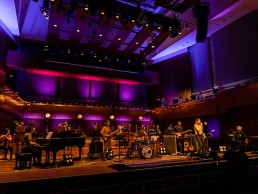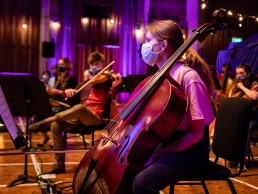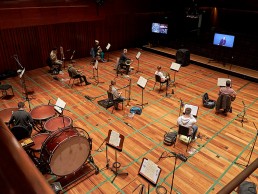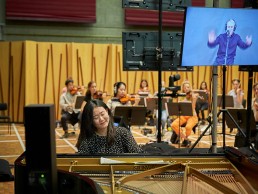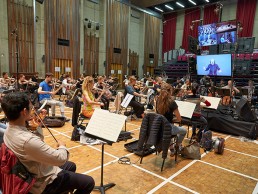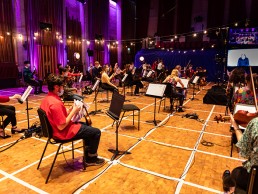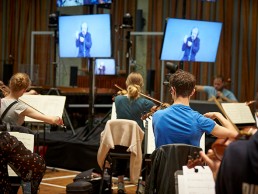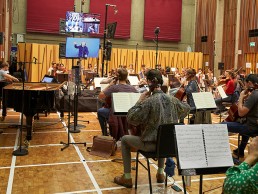This website uses cookies so that we can provide you with the best user experience possible. Cookie information is stored in your browser and performs functions such as recognising you when you return to our website and helping our team to understand which sections of the website you find most interesting and useful.
Guildhall School of Music and Drama
ProjectGuildhall School of Music and DramaLocationLondon, UKManufacturers NewTek, United States of America NDI, United States of America Audinate, AustraliaDistributorAltered ImagesInstallerAltered ImagesSubmitted by NewTek
Guildhall School of Music & Drama had a big question to answer when COVID-19 hit. The pandemic meant live performances must incorporate streaming and remote collaboration became necessary as social distancing rules dictated three-metres between musicians. It also meant the final of the Gold Medal – Guildhall School’s premier music prize, traditionally awarded each May in a sold-out Barbican Hall – would not take place.
“We needed to overcome a couple of obstacles,” said Julian Hepple, Guildhall’s head of recording and audiovisual. “First, we had to be able to record lots of performances – simultaneously and really easily. A lot of that would be piloted by one person, but we also required a TV studio to do our flagship productions. Space flexibility was key, and our facilities had to allow large numbers of people to create music or share education simultaneously.”
The Guildhall team decided an NDI system would be the best fit. Developed by NewTek, now part of the Vizrt Group, NDI enables disparate systems and devices to connect and communicate over IP networks, creating an IP-based production environment with shared access to video, audio and data. Working with NewTek, as well as technology solutions reseller and workflow design firm, Altered Images, Guildhall devised a setup for an entirely new NDI network.
This NDI network covered four buildings in different parts of the campus, working seamlessly with the existing Dante audio network. PTZ cameras were installed in each orchestral room, providing the conductor with views of the musicians working in separate areas. A PTZ camera livestreams the conductor’s gestures back to screens in the rooms.
“It was remarkable how little impact any of that had on our chain – NDI is amazing,” Julian said. “The biggest differential was one room that was three frames behind the real world, and one at four frames behind. We’re talking about one frame difference across 900m.”
It became demonstrably clear that 1080p50 video could be transferred anywhere on campus in a tenth of a second. As a result, the Gold Medal event went ahead successfully in September 2020.
Musicians, actors, and other creatives no longer need to be located in the same room – or same building – to perform together in real time. And that transfer speed offered by NDI is critical.
“This was significantly quicker than expected,” said Julian. “Most importantly, it arrives at any screen with the frame locked, meaning everyone sees the exact same image at the exact same time. As such, a large ensemble – wherever they are – can see a conductor simultaneously. “The only person experiencing any latency is the conductor, who sees the rooms that he is choosing to conduct at about a tenth of a second behind – in conductor terms, that’s nothing.”
The system designed by Guildhall provides not just a Covid-19 workflow, but an entirely new avenue for collaboration and creativity. Further, it provides a level of confidence that the school can continue its work if social distancing guidelines are reintroduced at some time in the future.
Most importantly, however, is that it allows performers to continue to showcase their craft and talent.
“That was the first orchestra to perform since the lockdown,” said Julian. “Since then, we’ve done four or five other full orchestral projects, tonnes of big band stuff, plus an orchestral Beatles project. We’ve carried out about 300 public-facing productions over the past year – exactly the same as the School put on in pre-pandemic times. Students haven’t missed any opportunities. Now, they’re just performing live to a camera, instead of an audience. We’ve managed to minimise the amount of disruption to student experience.”
